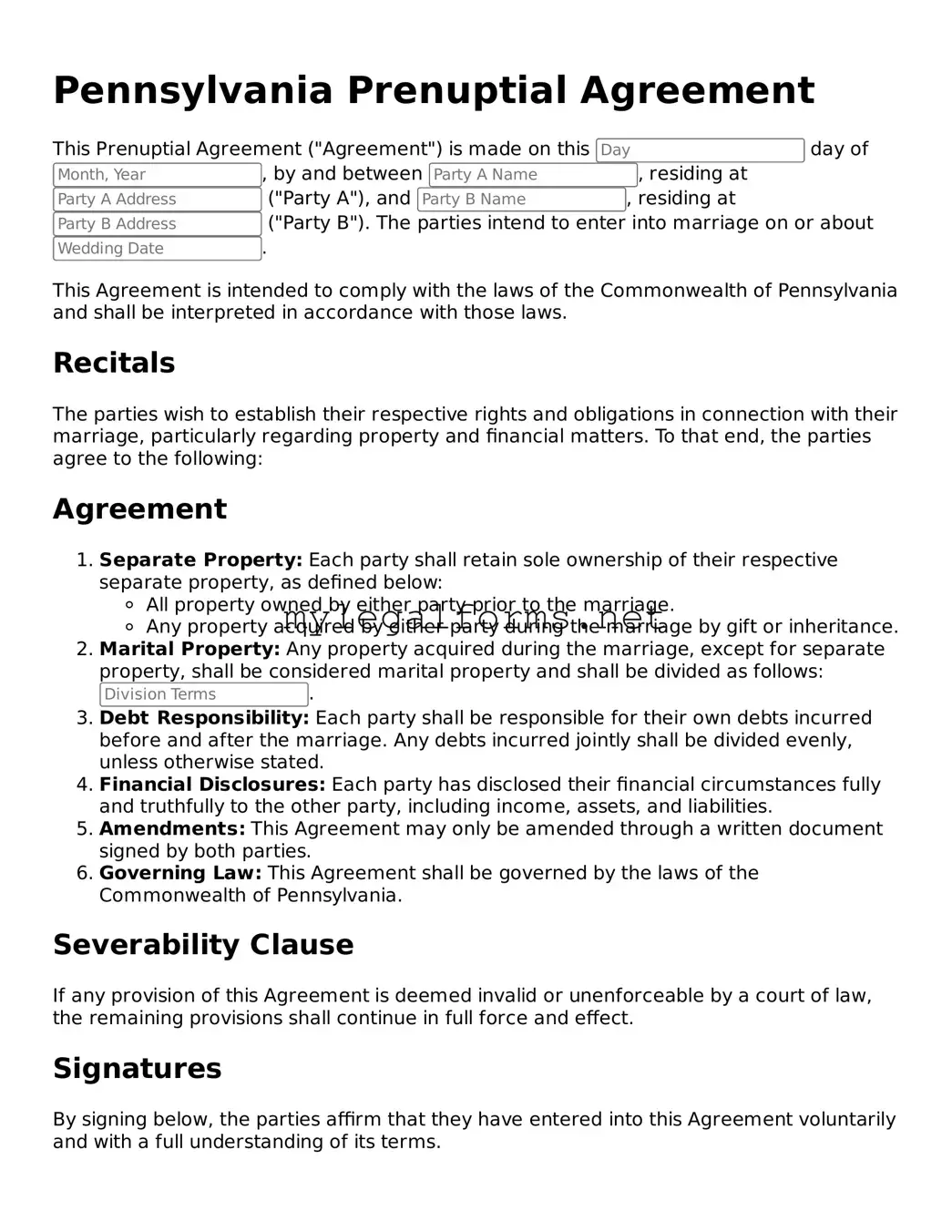Prenuptial Agreement Document for Pennsylvania State
A Pennsylvania Prenuptial Agreement form is a legal document that outlines the financial and property rights of each spouse in the event of divorce or separation. This agreement allows couples to establish their expectations and responsibilities before entering into marriage. By utilizing this form, individuals can protect their assets and clarify their financial arrangements, fostering a sense of security in their relationship.
Launch Prenuptial Agreement Editor

Prenuptial Agreement Document for Pennsylvania State
Launch Prenuptial Agreement Editor

Launch Prenuptial Agreement Editor
or
⇓ PDF Form
Complete the form at your pace — fast
Finish your Prenuptial Agreement online and download the final version.